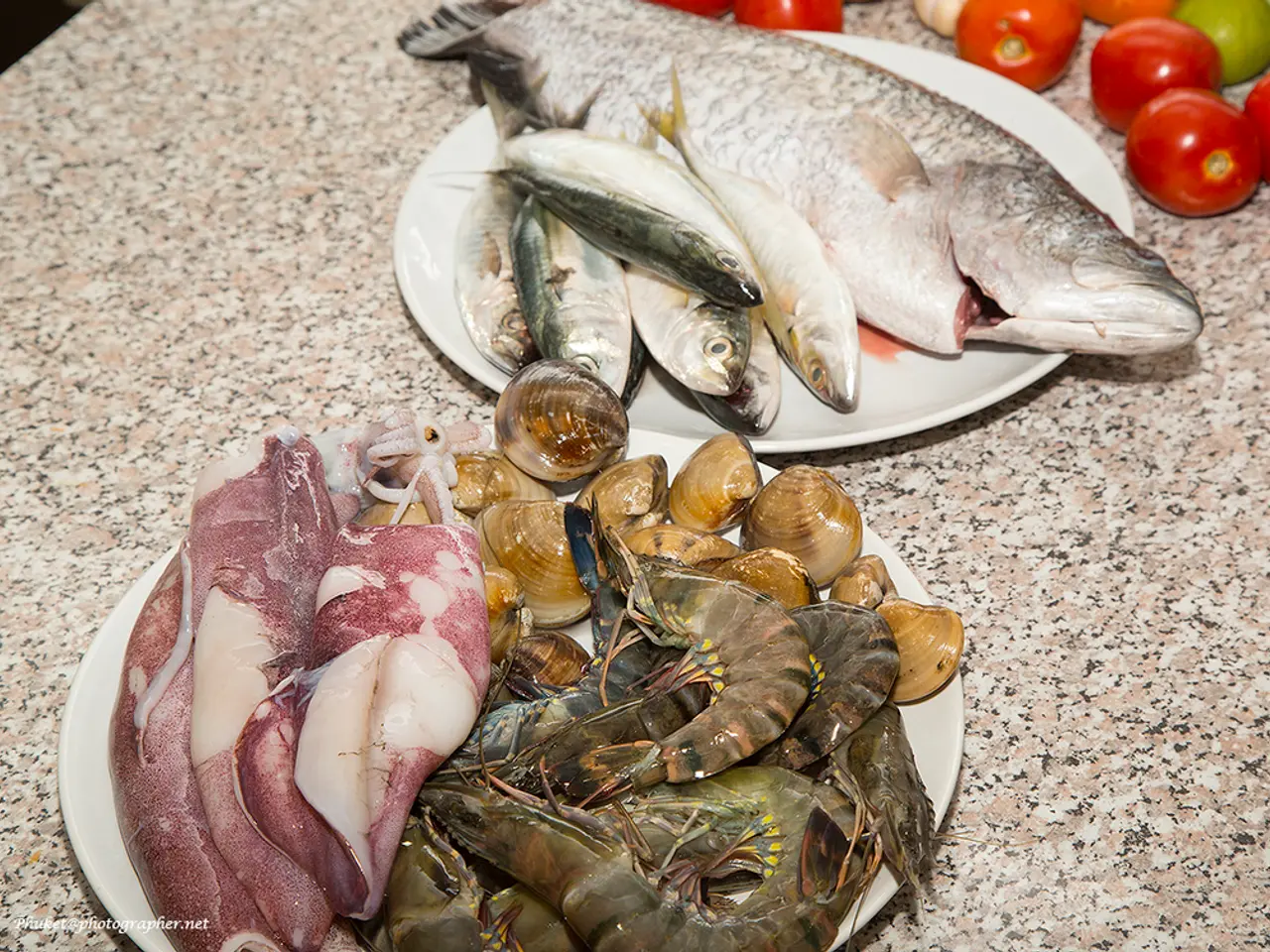Improving Brain Health through the Nordic Diet
New Nordic Diet Offers Brain Health Benefits Similar to Mediterranean Diet
Two popular diets, the Mediterranean and Nordic, have been recognized for their health benefits, particularly their impact on brain health. While they share many similarities, they differ in their emphasis on certain nutrients.
Mediterranean Diet
The Mediterranean diet is rich in olive oil, fruits, vegetables, whole grains, legumes, nuts, and fish. It is packed with omega-3 fatty acids, polyphenols, and antioxidants. This diet offers numerous brain health benefits, including:
- Reducing inflammation and oxidative stress, which are linked to cognitive decline.
- Promoting a healthy gut-brain axis through fiber and polyphenols.
- Associated with a reduced risk of cognitive decline and dementia.
- Supporting cardiovascular health, which is linked to cognitive health.
Nordic Diet
The Nordic diet, developed in 2009, emphasizes whole grains, berries, fish (especially fatty fish like salmon), and root vegetables. While it shares many similarities with the Mediterranean diet, it focuses more on local Nordic ingredients. The Nordic diet's brain health benefits include:
- The diet's emphasis on whole foods and antioxidants likely offers similar benefits in reducing cognitive decline.
- The Nordic diet includes high levels of omega-3 fatty acids from fish, which support brain health by reducing inflammation.
- The diet's focus on fatty fish and berries (rich in antioxidants) may help protect against neurodegeneration.
Key Differences
The main difference between the two diets lies in the type of oil used: the Mediterranean diet is olive oil-based, while the Nordic diet predominantly uses rapeseed oil, which contains 10 times more ALA (plant-based omega 3 fat) than olive oil.
Long-term followers (4+ years) of the Nordic diet were found to perform better in memory and language tests. However, more comprehensive research exists on the Mediterranean diet's cognitive benefits compared to the Nordic diet.
Brain-Building Foods in the Nordic Diet
Berries (like bilberry, blackcurrant, blueberry, lingonberry, and cloudberry) are brain-building foods in the Nordic diet, proven to improve memory and protect against brain damage. Anthocyanin content in berries increases blood flow to the brain and helps form new brain connections.
Fatty fish (like salmon, mackerel, and herring) are rich sources of DHA, a type of omega 3 fat needed for a healthier brain. Increasing DHA intake can increase the size of brain areas involved in learning and memory and improve processing speed.
The New Nordic Diet also recommends an intake of DHA at 500 mg/day to meet needs, which can be easily obtained by following the diet's recommended 200-300g fish intake per week.
The diet's emphasis on a "plant-based" eating pattern, with a recommended intake of more than 300g per day of total fruits and more than 400g per day of total vegetables, ensures a high intake of essential nutrients and antioxidants.
In conclusion, both the Mediterranean and Nordic diets offer brain health benefits, primarily through their anti-inflammatory and antioxidant properties. While the Mediterranean diet is more extensively studied and recognized for these benefits, the Nordic diet's focus on local ingredients and whole foods may offer similar benefits in reducing cognitive decline.
The Nordic diet, with its emphasis on berries, fatty fish, and a "plant-based" eating pattern, may provide similar benefits as the Mediterranean diet in reducing cognitive decline due to its high antioxidant content. Additionally, science suggests that the diet's focus on the intake of omega-3 fatty acids from fish, particularly DHA, can support mental health by potentially improving memory and reducing inflammation in the brain.




